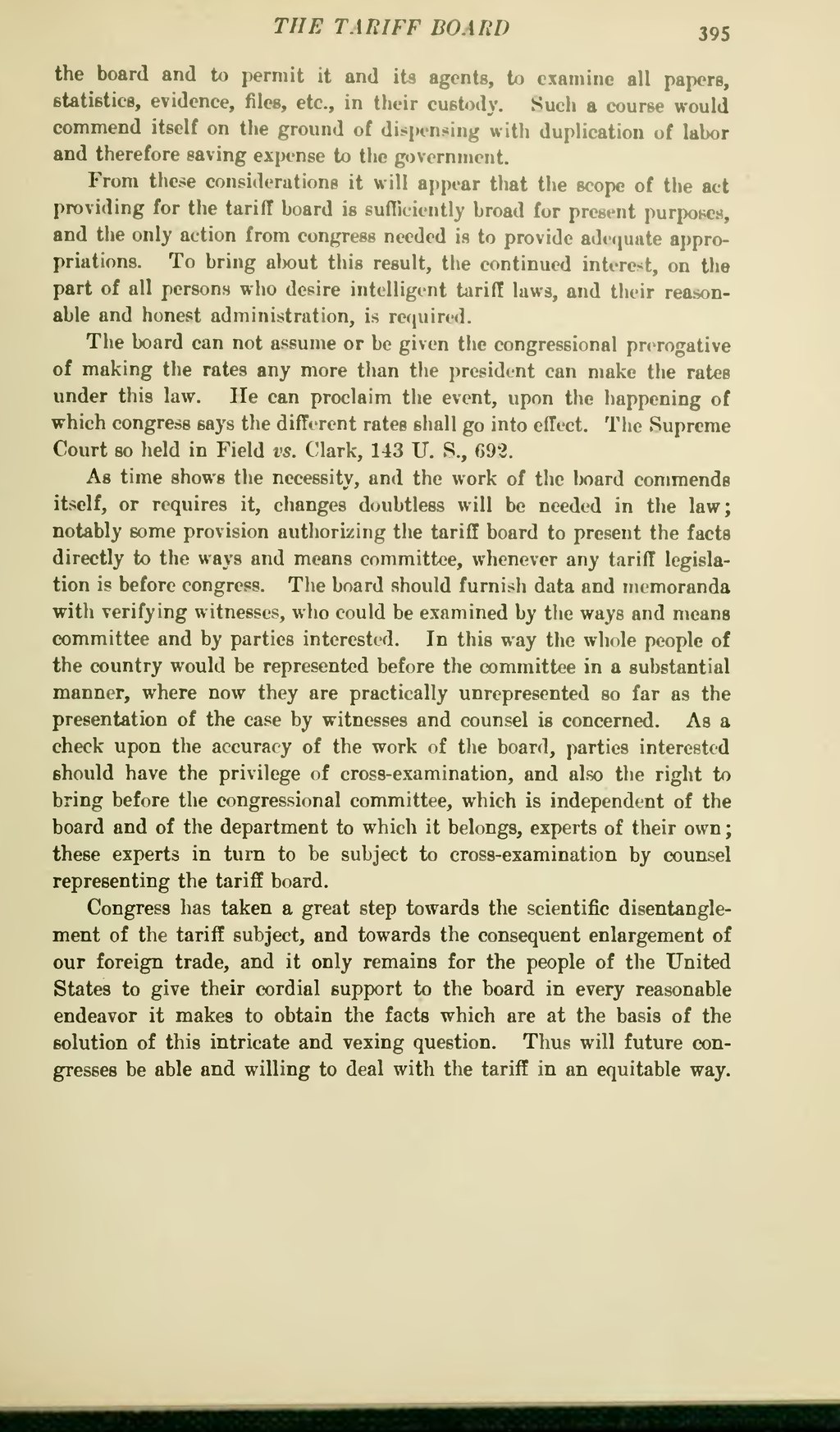the board and to permit it and its agents, to examine all papers, statistics, evidence, files, etc., in their custody. Such a course would commend itself on the ground of dispensing with duplication of labor and therefore saving expense to the government.
From these considerations it will appear that the scope of the act providing for the tariff board is sufficiently broad for present purposes, and the only action from congress needed is to provide adequate appropriations. To bring about this result, the continued interest, on the part of all persons who desire intelligent tariff laws, and their reasonable and honest administration, is required.
The board can not assume or be given the congressional prerogative of making the rates any more than the president can make the rates under this law. He can proclaim the event, upon the happening of which congress says the different rates shall go into effect. The Supreme Court so held in Field vs. Clark, 143 U. S., 692.
As time shows the necessity, and the work of the board commends itself, or requires it, changes doubtless will be needed in the law; notably some provision authorizing the tariff board to present the facts directly to the ways and means committee, whenever any tariff legislation is before congress. The board should furnish data and memoranda with verifying witnesses, who could be examined by the ways and means committee and by parties interested. In this way the whole people of the country would be represented before the committee in a substantial manner, where now they are practically unrepresented so far as the presentation of the case by witnesses and counsel is concerned. As a check upon the accuracy of the work of the board, parties interested should have the privilege of cross-examination, and also the right to bring before the congressional committee, which is independent of the board and of the department to which it belongs, experts of their own; these experts in turn to be subject to cross-examination by counsel representing the tariff board.
Congress has taken a great step towards the scientific disentanglement of the tariff subject, and towards the consequent enlargement of our foreign trade, and it only remains for the people of the United States to give their cordial support to the board in every reasonable endeavor it makes to obtain the facts which are at the basis of the solution of this intricate and vexing question. Thus will future congresses be able and willing to deal with the tariff in an equitable way.
